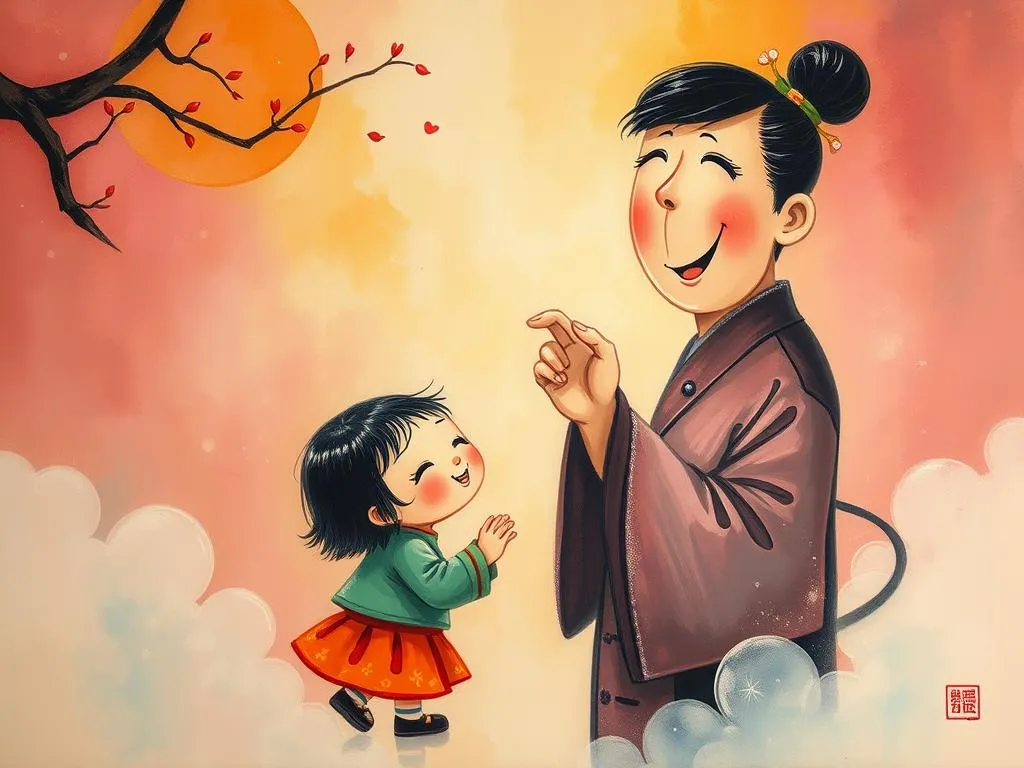
Dreams have long been a source of fascination, serving as a window into our subconscious thoughts, feelings, and experiences. Among the myriad of dreams one may encounter, those involving family—particularly within the context of Chinese cultural backgrounds—carry rich symbolism and significance. Such dreams can be deeply rooted in familial connections, traditions, and cultural expectations, making them particularly intriguing for many. Understanding these dreams can provide valuable insights into our lives, relationships, and inner selves.
Symbolism and Meaning
Dreams about Chinese family can encompass a range of symbols and meanings. They often evoke feelings of nostalgia, duty, and the weight of familial expectations. The family unit in Chinese culture is deeply intertwined with values such as respect for elders, the importance of lineage, and the concept of filial piety. This cultural backdrop influences how dreams about family are interpreted.
One prominent symbol in these dreams is the ancestor. Ancestors in Chinese culture symbolize wisdom, guidance, and the continuity of family heritage. Dreaming of ancestors may suggest a desire to connect with one’s roots or seek guidance in navigating current life challenges. It can also reflect feelings of responsibility toward one’s family legacy.
Another key symbol is the family home, which often represents security, belonging, and emotional stability. A dream featuring a family home may indicate a longing for comfort or an exploration of one’s identity within the family context. Conversely, if the home appears dilapidated or chaotic, it might symbolize unresolved conflicts or emotional turmoil within the family dynamic.
Festivals and traditions, which are significant in Chinese culture, can also appear in dreams. For instance, dreaming of celebrating the Lunar New Year with family may reflect a desire for renewal, joy, and reconnection with loved ones. It can signify a time of reflection and gratitude, emphasizing the importance of family bonds.
Moreover, the presence of food in these dreams can be particularly significant. Food in Chinese culture often symbolizes togetherness and nourishment, not just physically but emotionally and spiritually. Dreaming of a family gathering around a meal might indicate a yearning for unity and connection, while a lack of food or unpleasant meals could suggest feelings of deprivation or disconnection.
Examining these symbols allows for a deeper understanding of the emotional and psychological frameworks that govern our relationships with family. Reflecting on what specific symbols resonate with your personal experiences can lead to greater self-awareness and emotional healing.
Key Scenarios and Variations
The context of dreams involving Chinese family can vary greatly, leading to different interpretations based on specific scenarios. One common variation involves the dreamer having a conversation with a deceased family member. Such dreams often evoke powerful emotions and can be interpreted as a manifestation of unresolved feelings or unfinished business. The dreamer may be seeking closure or a sense of peace regarding their relationship with the deceased.
Another scenario might involve family gatherings, such as weddings or reunions. Dreaming of joyful family celebrations can signify a desire for connection and a reaffirmation of familial bonds. These dreams often reflect positive emotions and a sense of belonging. However, if the gatherings are fraught with tension or conflict, they may indicate underlying family issues that need to be addressed.
In some cases, the dreamer might find themselves in a familiar family setting but populated by unfamiliar faces. This variation could symbolize the dreamer’s feelings of alienation or disconnection from their family. It may suggest a need to explore one’s identity beyond familial expectations or to confront familial roles that feel restrictive.
Dreams of family conflict, such as arguments or disagreements, are also prevalent. These dreams may reflect the dreamer’s anxieties about family dynamics and personal relationships. They can serve as a prompt to examine one’s feelings about family obligations and the pressures that come with them. Engaging with these dreams can lead to productive self-reflection and an opportunity to address any unresolved issues.
Additionally, the setting of the dream can drastically alter its meaning. For instance, dreaming of a family outing in a serene landscape may evoke feelings of peace and harmony, while a dream set in a crowded, chaotic environment may suggest feelings of overwhelm or loss of identity within the family unit.
By paying attention to the specific details and emotions in these scenarios, dreamers can gain a clearer understanding of their feelings toward family and how these feelings manifest in their daily lives.
Real-Life Connections and Takeaways
Connecting dreams about Chinese family to real-life situations can be a transformative experience. These dreams often reflect the dreamer’s current emotional state and relationships, serving as a mirror to one’s inner life. To derive meaning from these dreams, readers are encouraged to engage in self-reflection. Consider what aspects of your family life resonate with the symbols and scenarios presented in your dreams.
As you reflect, think about your relationships with family members. Are there unresolved conflicts that need addressing? Do you feel a strong connection to your cultural heritage, or is there a desire to break free from it? Understanding these connections can provide insight into your personal journey and emotional well-being.
Moreover, consider the role of communication in your family dynamics. Dreams that involve conversations with family members can highlight the importance of open dialogue. If you find yourself dreaming about a particular family issue, it may be time to address it in waking life. Initiating conversations with family members about feelings or experiences can pave the way for healing and growth.
Another takeaway is the importance of self-care and nurturing one’s emotional needs. If dreams reflect feelings of disconnection or conflict, it may be beneficial to focus on self-care practices that promote emotional well-being. Engaging in activities that bring joy, such as spending time with friends or pursuing hobbies, can help restore balance in your life.
Finally, consider the influence of cultural values in your dreams. For those rooted in Chinese culture, understanding the implications of filial piety and familial duty can provide context for feelings of obligation or pressure. Reflecting on how these values shape your identity and relationships can lead to a deeper understanding of your dreams.
In conclusion, dreams involving Chinese family are rich with symbolism and meaning, offering a unique lens through which to examine our relationships and emotions. By exploring the symbols, scenarios, and personal connections of these dreams, readers can embark on a journey of self-discovery and healing. As you reflect on your own family dreams, remember that they are not just fleeting images but profound messages from your subconscious, urging you toward growth, understanding, and connection.







